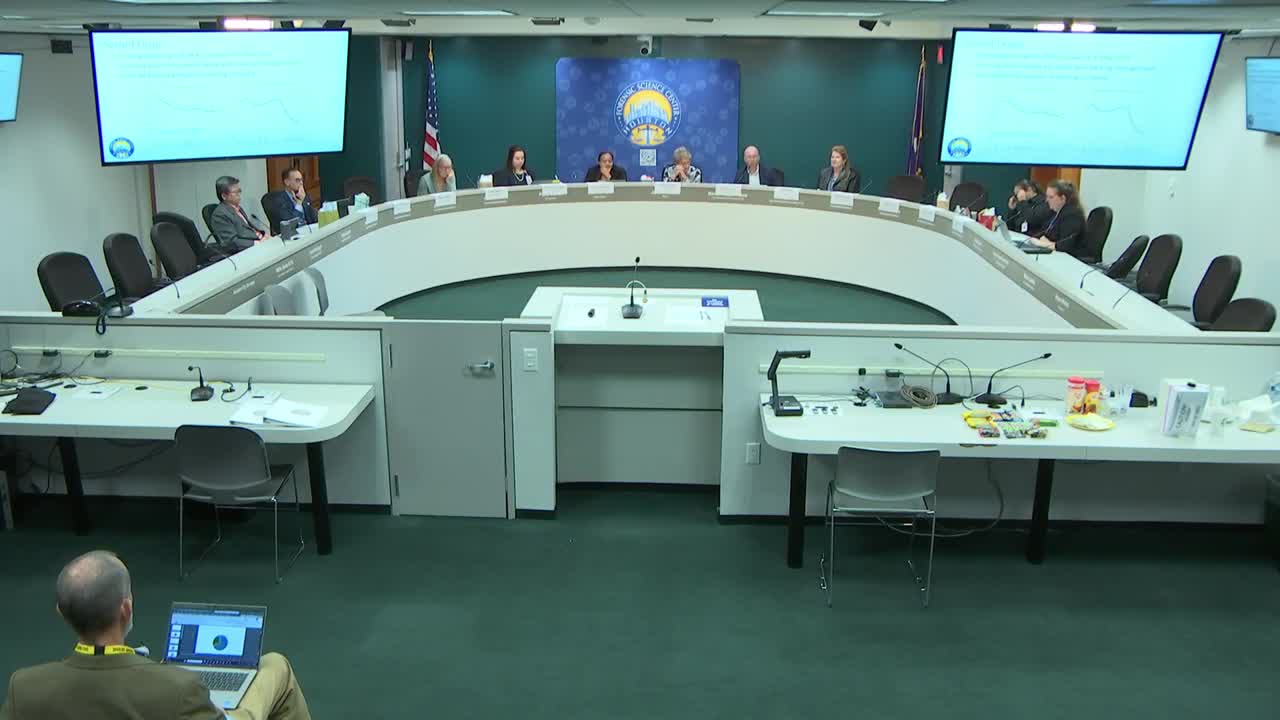HFSC cites firearms examinations as primary remaining bottleneck, seeks training vendors and hires
Get AI-powered insights, summaries, and transcripts
Subscribe
Summary
Board heard that firearms testing is the lab's largest unresolved backlog due to a national shortage of trained examiners; HFSC has five examiner slots planned and issued an RFP for external training but expects extended timelines for apprenticeship-style training and pay‑level implications for recruits.
At the meeting, HFSC leaders told the board that while many backlogs are declining, firearms examinations remain the largest continuing bottleneck.
Peter described statewide and national shortages of trained firearms examiners and said the lab had anticipated a surge in firearms requests. The center reported it expects to hire for five firearms examiner slots and has issued a request for proposals to secure outside training vendors. Officials explained two training models under consideration: on-site "train the staff" delivery, which tends to allow hires to remain local, or sending new hires away for multi-month training, which typically requires higher pay to recruit and retain staff.
Board members asked whether the lab prioritizes cases. HFSC said it operates a priority-request system coordinated weekly with assistant district attorneys and the Houston Police Department to triage cases with imminent court dates; nonetheless, of the roughly 400 firearms‑related backlog cases described, most were homicides or similarly high‑priority matters.
HFSC staff said the training burden falls heavily on the small number of examiners already signed off to do casework; three of five examiners presently help with training, leaving limited full‑time casework capacity. The lab noted it also uses limited outsourcing, including to Tarrant County, but that nationwide capacity constraints make outsourcing a partial, not complete, solution. No formal board action was taken; staff said vendor selection and hiring are next operational steps.
